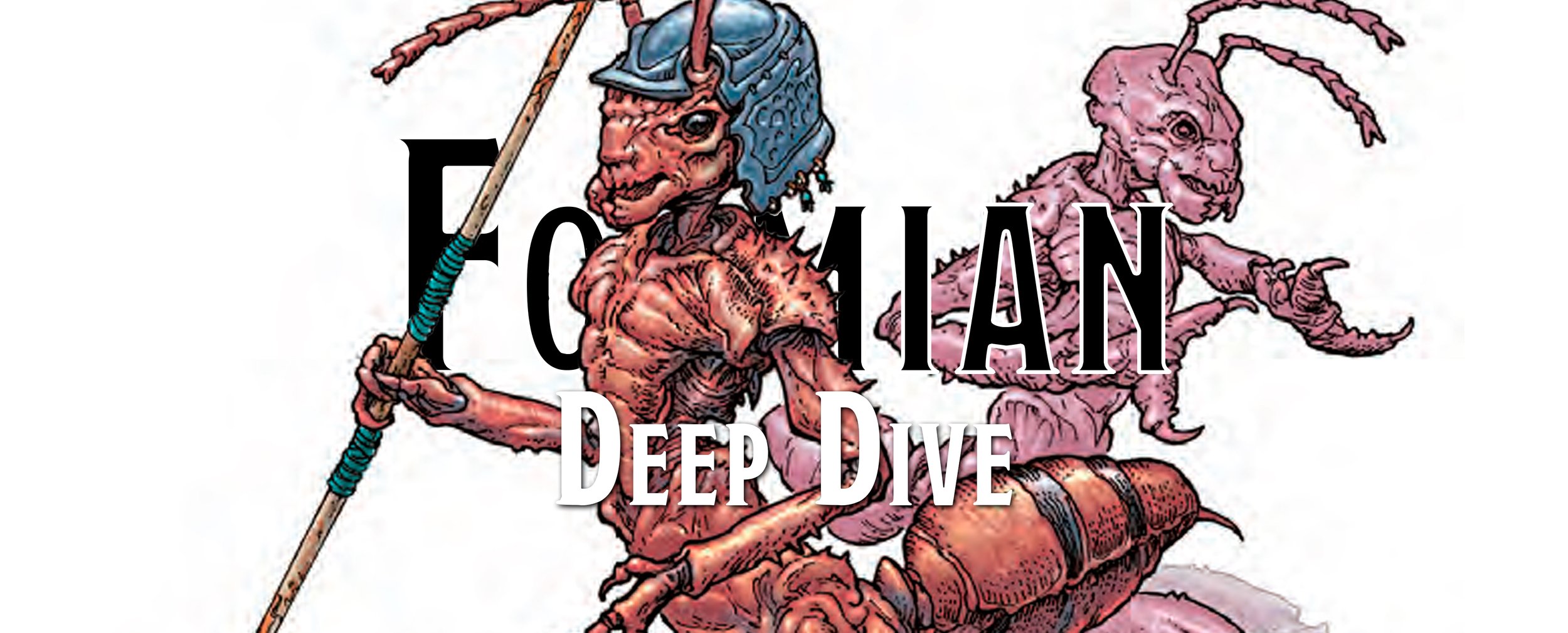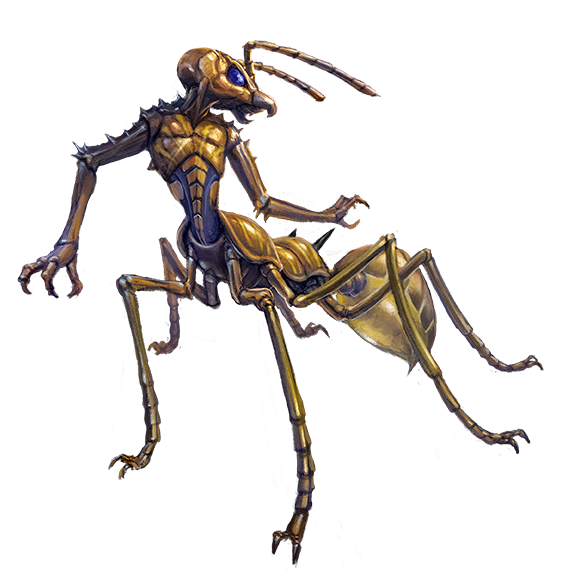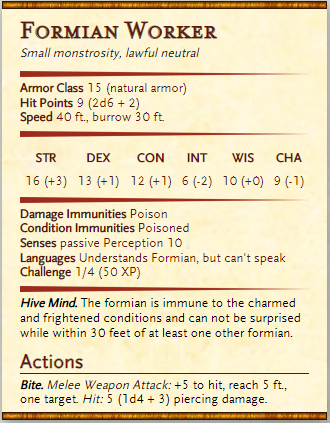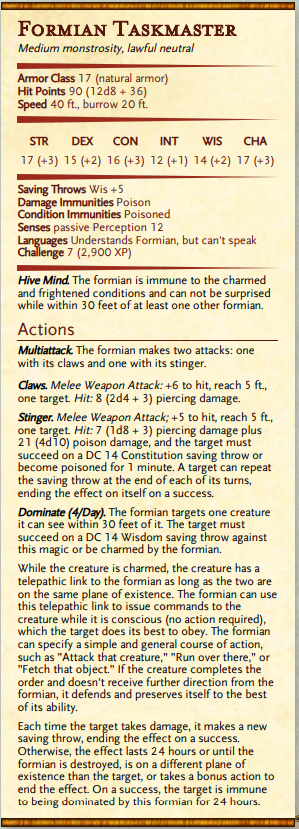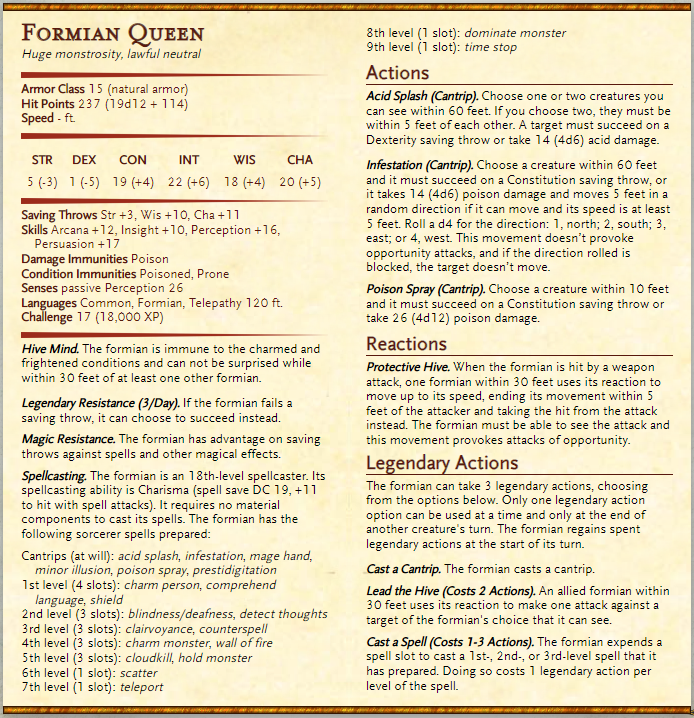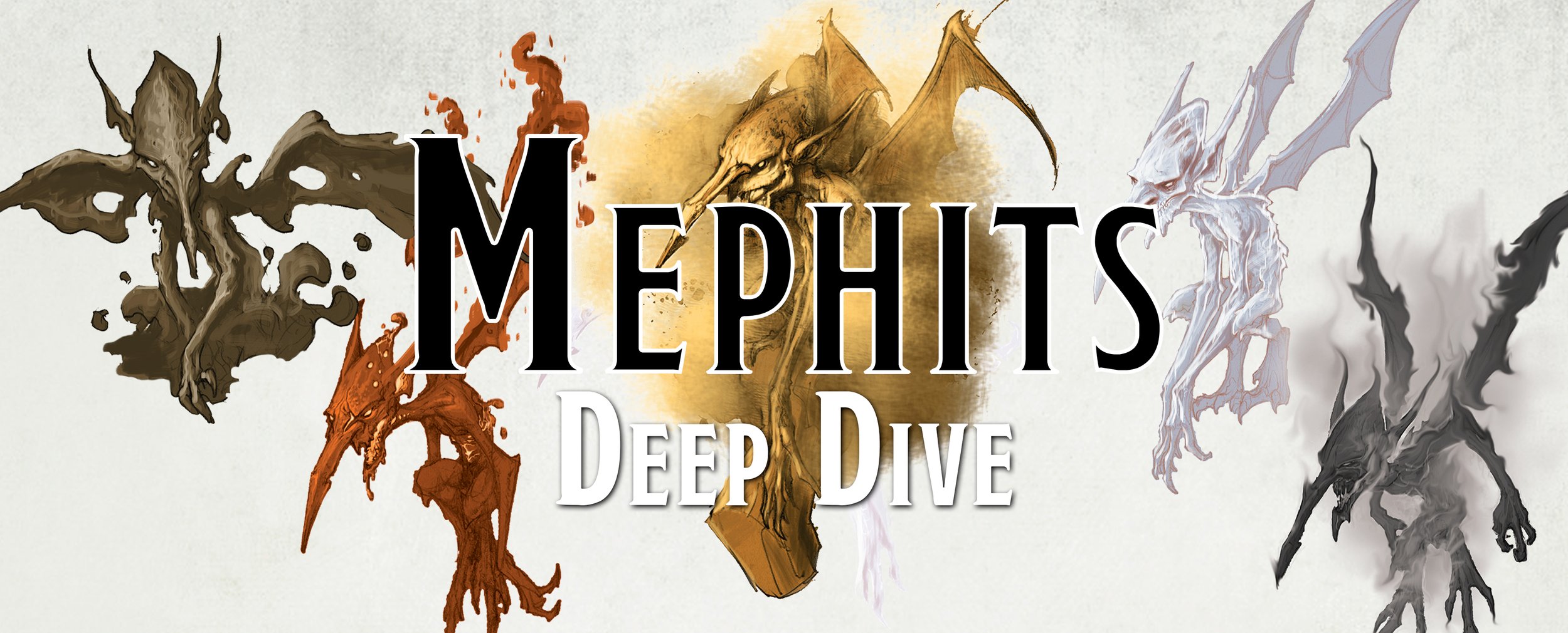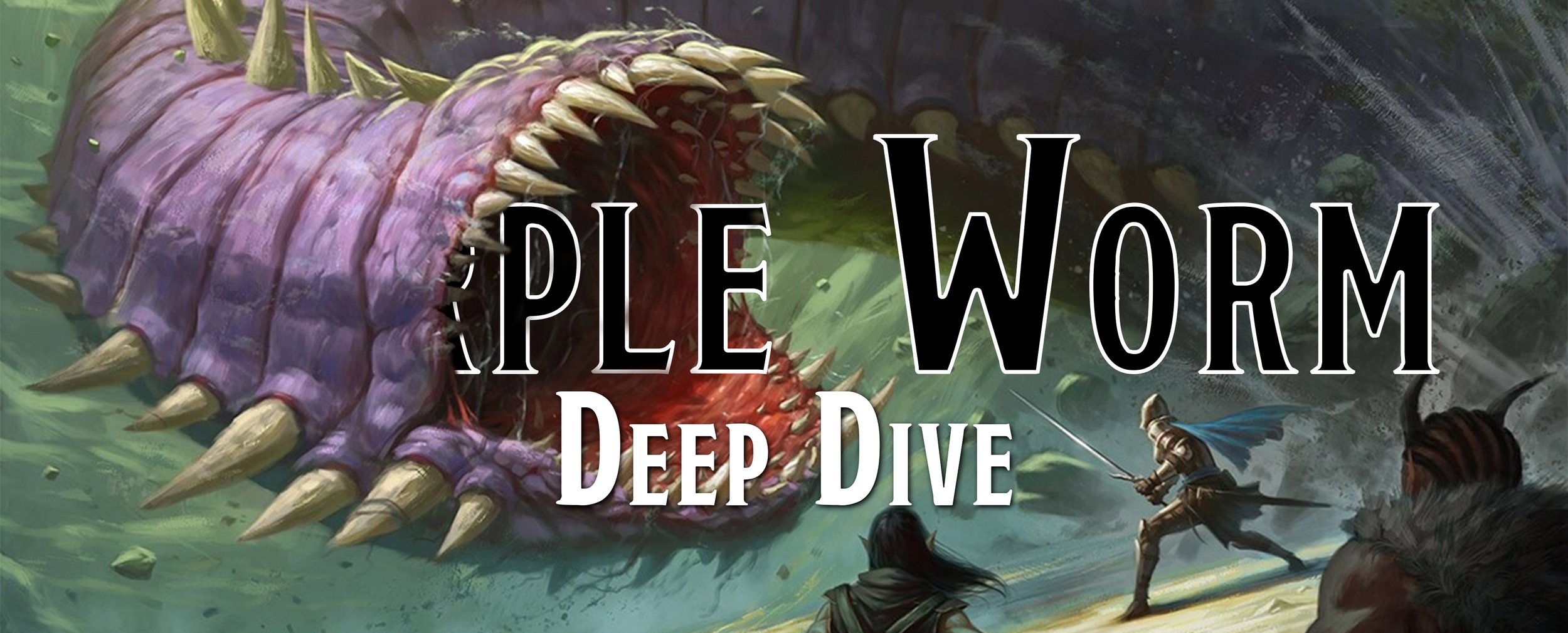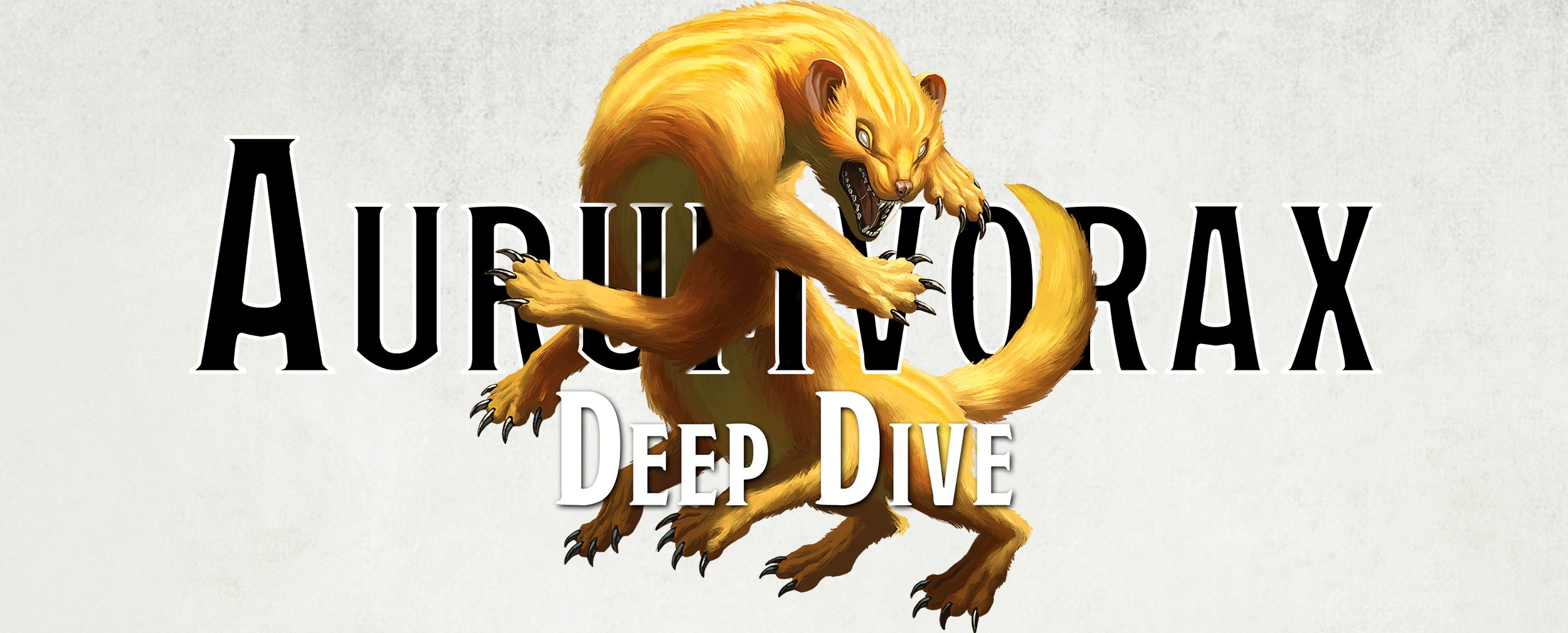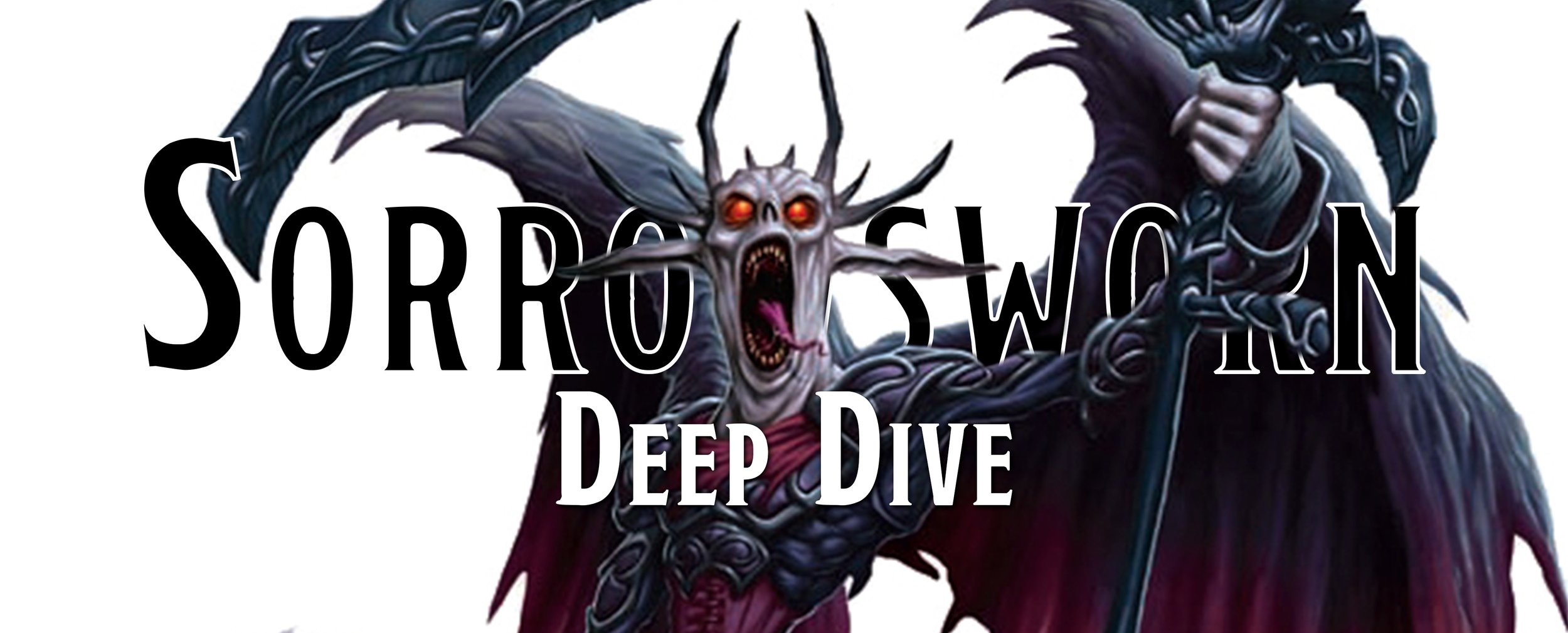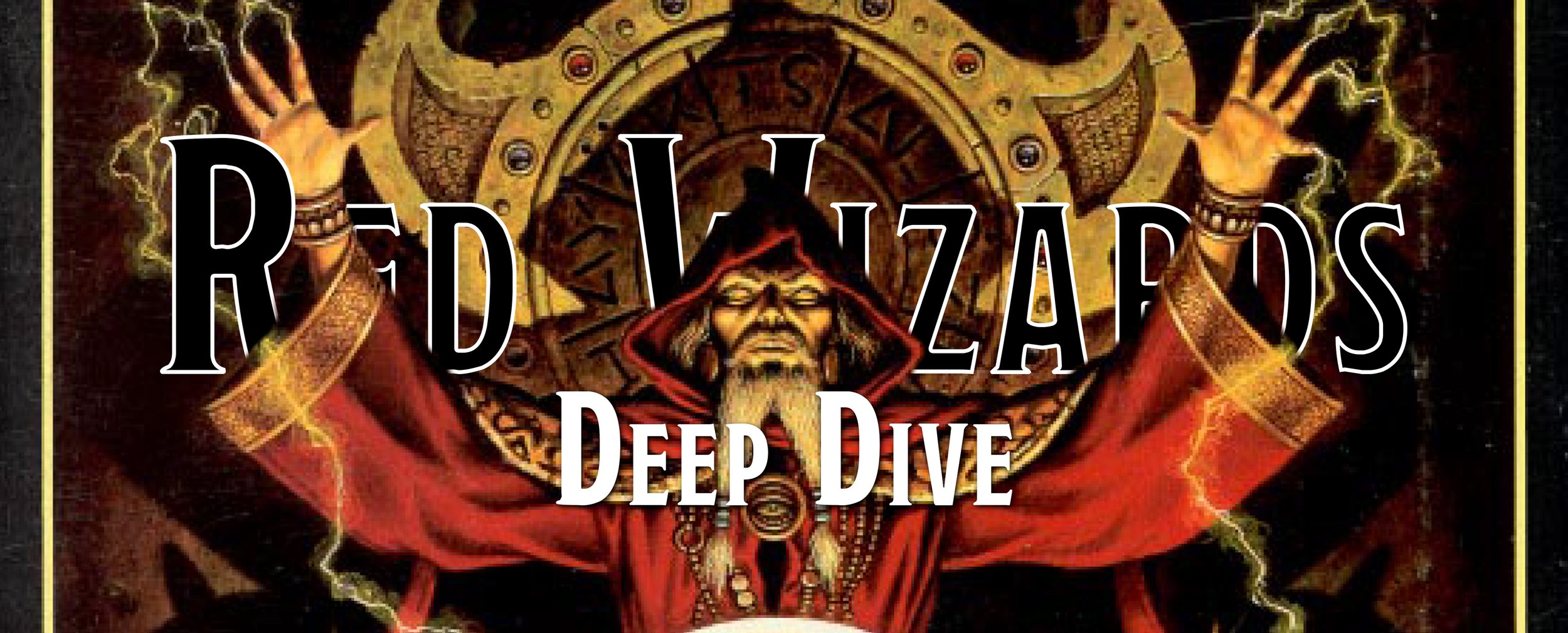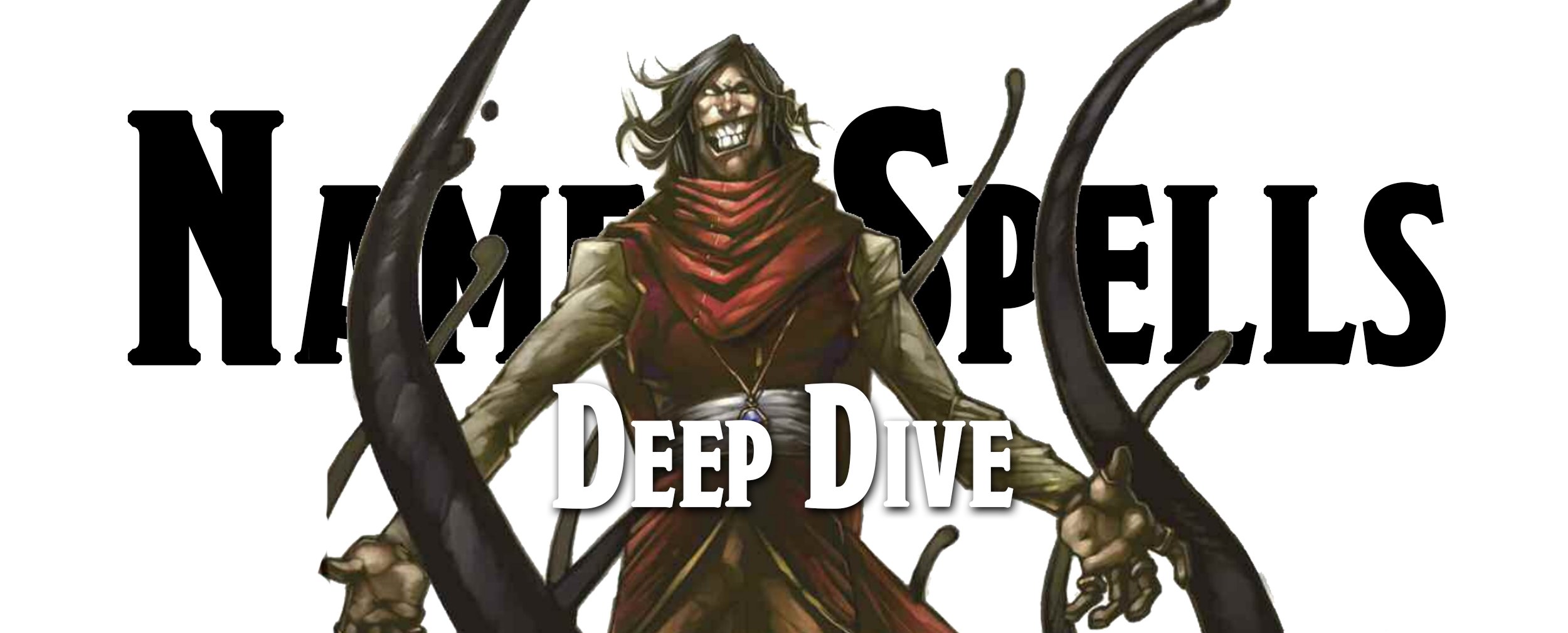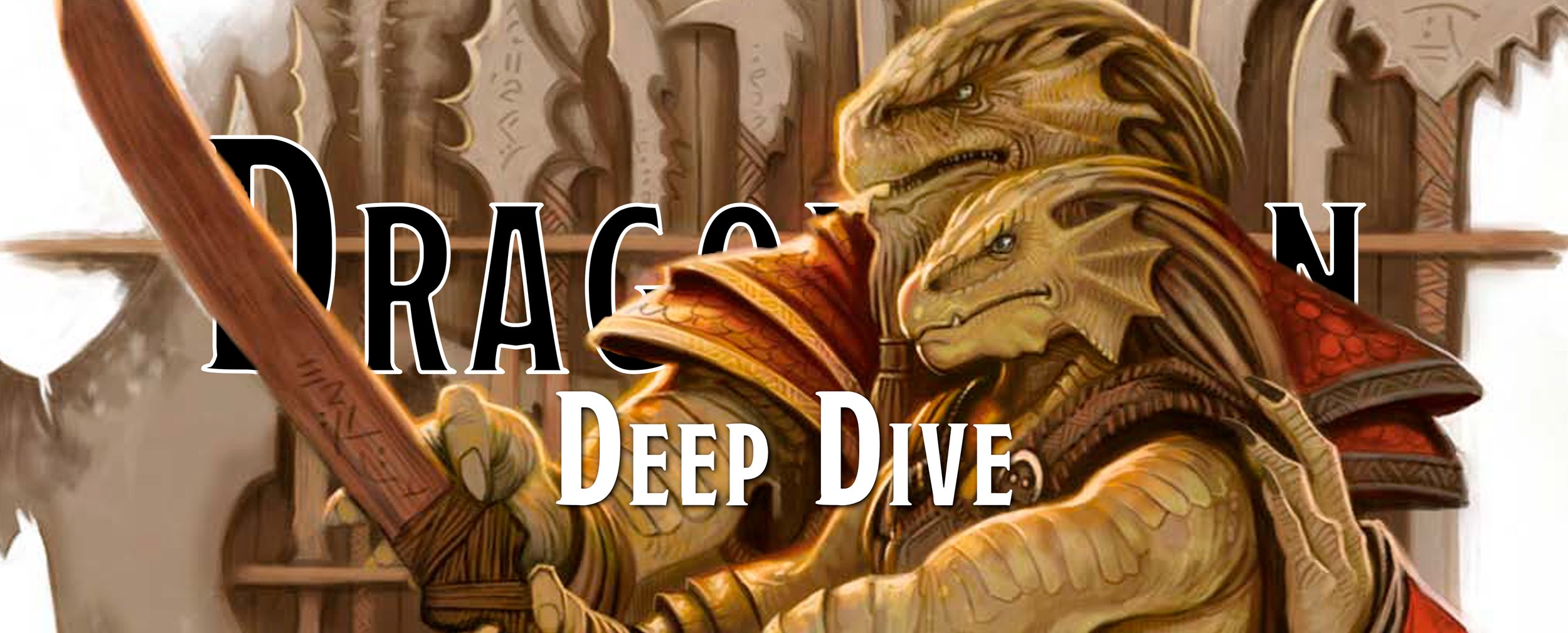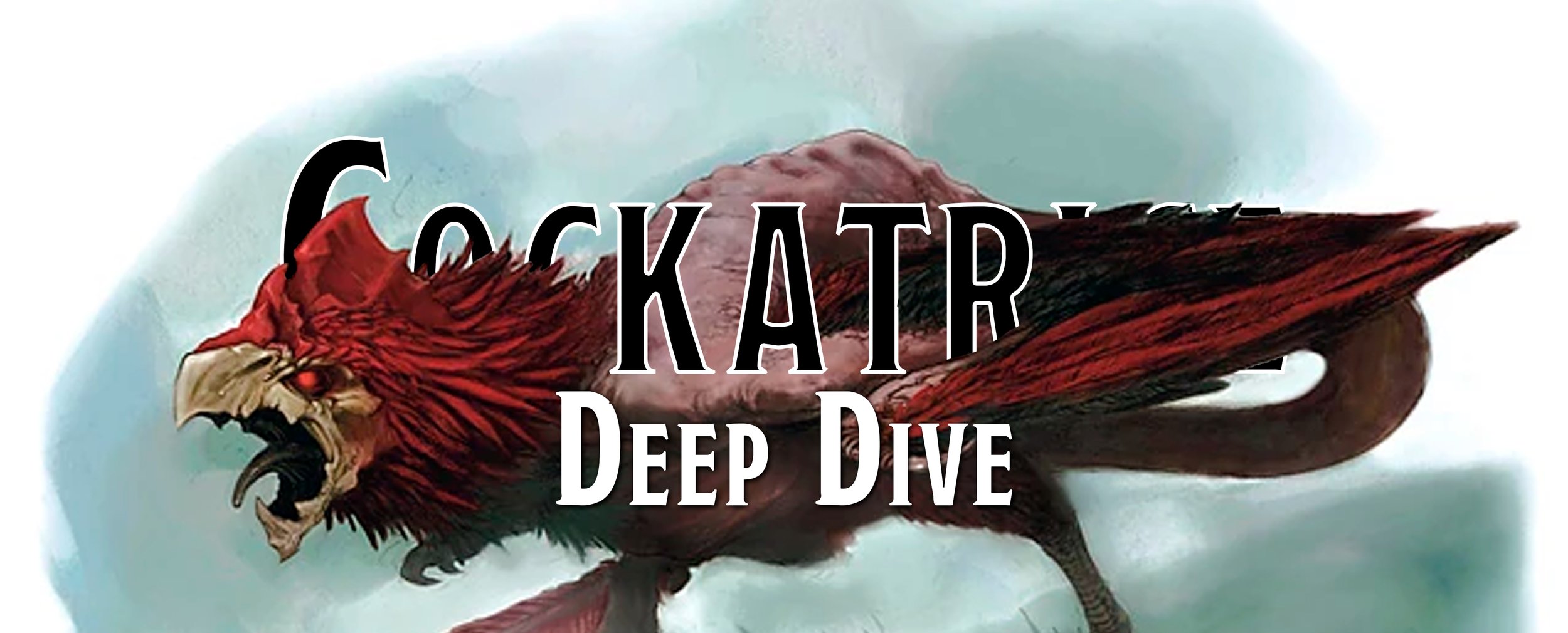Deep Dive - The Formian
Whoever thought of taking the common ant and giving it the form of a centaur is either a genius or quite disturbed. Either way, the Formian is a creature to behold; a 7-foot-tall ant who walks like a horse and can use its front foreclaws as hands. Unfortunately for the Formian, and for us, the Formian was short-lived and hasn’t existed for over a decade. While these may not be the usual monsters a party of adventurers might face, they are the most organized.
AD&D (1e) - Formian (Myrmarch)
Frequency: Very rare
No. Appearing: 5-8
Armor Class: 1
Move: 15”
Hit Dice: 6+6
% in Lair: 100%
Treasure Type: Nil
No. of Attacks: 2
Damage/Attack: 2-8/1-2
Special Attacks: Poison
Special Defenses: Nil
Magic Resistance: Standard
Intelligence: Exceptional
Alignment: Lawful Neutral
Size: L
Psionic Ability: Nil
Level/X.P. Value: V: 400/ +8/hp
Monster Manual II, 1983 TSR Inc
Debuting in the Monster Manual II (1983), the Formians are an intelligent race of ant-men who are sometimes called centaur-ants. All Formians look like ants, which seems simple enough to comprehend. What will blow your mind when you encounter one is their head, thorax, and front legs will be raised up like a horse. The Formains have flexible waists, which allows them to do this, resulting in four legs on the ground like a horse while the other two are raised like hands. These forelegs are jointed at the wrist, complete with three claws. We're curious if the proper term would be forearm in this case, but that's what the book says, so we're sticking with it. To us, they kind of just look like ants that are a bit more flexible and a whole lot bigger.
The way to determine a Formian's occupation is by its size. The worker is the size of a large dog. A warrior is more prominent, topping out around the size of a pony, and the myrmarch grows to be as large as a horse. There's also the gyrmarch, the male version of the mrymarch, which is as large as a draft horse.
Another defining characteristic of the Formian is their color. This is what determines what city a Formian is from. Colors include solid dark brown, striped brown and tan, tan, red, striped red and tan, red head with a black body, black head with a red body, black, striped black and gray, and dark gray, and the colors go on. What's important to know is that Formians constantly war against each other, so if a striped brown and tan Formian ran into a dark gray Formian, you can be sure they'd come to blows. You won't hear any name-calling, though, as they communicate telepathically.
Formians of a single color reside in large cities that span from above-ground to underground. From the outside, the cities look like any other walled city. Once inside, you'll realize that there's nothing ordinary about it. The building has various shapes, including truncated cones, cylinders, or hemispheres. The only way to enter them is to figure out how to reach the entrance located at the top or along the upper portion. Once inside, you must travel through a maze of sloping ramps and vertical shafts to reach the actual city. Once you get to the city, you'll quickly realize this is where the action is. The underground is at least three times large than above ground, and here you'll find most of its population doing what ant-centaurs do.
Hopefully, you encounter the Formian outside its city. Their numbers will be smaller, and you'll only ever come upon workers or the occasional warrior class. If you don't, you will have many more to make friends with, though, you might be lucky and find one that can speak Common.
If you do go into a Formian city, which we can’t believe we have to say this but don’t do that! The population comprises hundreds, if not thousands, of Formians all working to ensure their city is the biggest, best, and strongest. There are one hundred Workers per city level, and while we aren’t given an estimate of the number of levels in a city, it is probably more than one. Among the Workers will be ten warriors who are probably supervising the two hundred slave workers they have, who are not the Formian Workers. These slave workers are either other Formians that have been captured from another colony of Formians or foolish adventurers who have stumbled into the Formian city. At least the enslaved workers won’t report you to their bosses when they see you, nor will they help you.
Myrmarches and Gyrmarches are the royalty of the Formian race and are only found within the city walls. Even if they are centaur-ants, nobles usually don't like mingling with the common folk or leaving the city's safety. They will remain in, or very close to the royal complex at the bottom of the city. Each myrmarch will have an entourage of two warrior guards and two workers. There will be at most five gyrmarchs in a city, who, besides being bigger than their female counterpart, also have additional hit points. Finally, there is a single queen Formian per city, but she will not fight. Why bother when every other creature in the city battles to the death to protect you and your eggs?
When you end up in combat with the Formians, and you know you will, there are a few things to be aware of. They are strong, with even the worker Formian having a Strength over 20. They will attack you with their front mandibles, with the warrior having four attacks, the myrmarch two, and a lowly worker just one. You'll need to be extra cautious when fighting a warrior or myrmarch since they can poison you, which as you can guess ends with you dying. Each has a stinger found in its abdomen, so if a Formian starts to turn around, it's not because it wants you to admire its backside.
2e - Formian (Myrmarch)
Climate/Terrain: Arcadia
Frequency: Very rare
Organization: Hive
Activity Cycle: Any
Diet: Omnivore
Intelligence: Exceptional (16)
Treasure: Nil
Alignment: Lawful Neutral (Good)
No. Appearing: 1d4+4
Armor Class: 1
Movement: 15
Hit Dice: 6+6
THAC0: 13
No. of Attacks: 2
Damage/Attack: 2d4/3d12
Special Attacks: Poison
Special Defenses: Nil
Magic Resistance: Nil
Size: L (7 feet tall)
Morale: Champion (15)
XP Value: 2000
Planes of Law, 1995 TSR Inc.
Let's leave the boring world of the Material Plane for a second as the Formians now inhabit Arcadia and are featured in Planes of Law (1995) and reprinted in Monstrous Compendium Annual Volume 3 (1996). While yes, they still live on the Material Plane, their primary residence is out in the Outer Planes. The main difference between those on Arcadia and the ones on your homeworld is that Arcadian Formians don’t war with one another, while those on the Material Plane can’t help but attack each other and take slaves to work on their Formian cities. Maybe we could all learn something from these Arcadian Formians, though we aren’t sure what that would be.
The Formians on Arcadia are centered around law and good, living in relative harmony with other Formian colonies. Note we specify other Formian colonies. Don’t start thinking that just cause they don’t war with their own kind, they won’t war with you and your adventuring party. Each colony is pretty similar, they are made up largely of workers, who rarely fight unless the colony’s city is being attacked, warriors, myrmarchs, and a queen that controls the entire colony.
If you do get in a fight with some Formians, you only have to worry about the warrior and myrmarch ants, since workers rarely ever fight, and a queen can’t attack. Warriors and myrmarchs still have poison, but luckily these poisons are kinder to whoever gets stabbed with the stinger. No longer do you have to worry about instantly dying, but rather a warrior’s poison will deal 2d4 points of damage and inflict -2 penalty to all your attack rolls for up to 6 turns. A myrmarch’s poison will deal 3d12 damage and then you are paralyzed for up to 4 turns. So maybe instantly dying from poison wasn’t so bad, since you are just prolonging your very painful death at this point.
Planes of Law, 1995 TSR Inc.
The Formians look the same as before with their subdued colors having no meaning other than where they come from and what to wear when trying to accessorize. Their front claws still function as hands, but to varying degrees. Workers' front claws are clumsy but perform well enough to handle the simple tools they use for building up their cities. A warrior's purpose is to defend the hive, so their claws can be deadly, while a myrmarch has as close to actual hands as their race has. There is no mention of whether or not the Queen has hands, but we do learn that she has legs, but they are atrophied since she never leaves her room, let alone the colony-city.
While Formians no longer have a telepathic communication network between them, they have their own language that is incomprehensible to most other creatures, so it’s basically the same thing. You aren’t going to learn how they will disembowel you since all you will hear is a loud, creepy chittering as they muse about the proper spices to use on you. There is also no hive-mind mentality that you'd find in actual ants. That doesn't mean the Queen can't control her subjects as they don’t actually have free will, or at least, no outsider has ever witnessed it.
All Formians live in a strict hierarchy, and those of a higher rank control the Formians below them. This means the poor worker ant centaur is at the mercy of all other Formians, while the myrmarch can only be controlled by the Queen. None of this will change either, as a Formian's rank in their society's hierarchy can never change. There are no revolutionaries within the ranks of Formians, if you are a worker, you will always be a worker.
3e/3.5e - Formian (Myrmach)
Large Outsider (Lawful, Extraplanar)
Hit Dice: 12d8+48 (102 hp)
Initiative: +8
Speed: 50 ft. (10 squares)
Armor Class: 28 (-1 size, +4 Dex, +15 natural), touch 13, flat-footed 24
Base Attack/Grapple: +12/+20
Attack: Sting +15 melee (2d4+4 plus poison) or javelin +15 ranged (1d6+4)
Full Attack: Sting +15 melee (2d4+4 plus poison) and bite +13 melee (2d6+2); or javelin +15/+10 ranged (1d6+4)
Space/Reach: 10 ft./5 ft.
Special Attacks: Poison, spell-like abilities
Special Qualities: Fast healing 2, hive mind, immunity to poison, petrification, and cold, resistance to electricity 10, fire 10, and sonic 10, spell resistance 25
Saves: Fort +12, Ref +12, Will +11
Abilities: Str 19, Dex 18, Con 18, Int 16, Wis 16, Cha 17
Skills: Climb +19, Concentration +18, Diplomacy +20, Hide +15, Knowledge (any one) +18, Listen +18, Move Silently +19, Search +18, Sense Motive +18, Spot +18, Survival +3 (+5 following tracks)
Feats: Dodge, Improved Initiative, Mobility, Multiattack, Spring Attack
Climate/Terrain: Clockwork Nirvana of Mechanus
Organization: Solitary, team (2–4), or platoon (1 plus 7-18 workers and 6-11 warriors)
Challenge Rating: 10
Treasure: Standard
Alignment: Always lawful neutral
Advancement: 13–18 HD (Large); 19–24 HD (Huge)
Level Adjustment: -
Monster Manual, 2001 Wizards of the Coast
In the Monster Manual (2001/2003), our friendly Formians come from the orderly plane of Mechanus and are no longer that friendly. The centaur-ant race attack all they come across, seeking to conquer their enemies to further their dominion and to grow their population of worker slaves. The Formians believe the ultimate goal of any rational creature would be to grow their hive-city and eventually conquer the planes. Of course, no one else thinks that. We never knew being lawful neutral allowed the hostile takeover of other countries, nations, and species, but the entire concept of alignment has always been a bit wonky.
Woe is the person that threatens a Formian queen or hive-city. If this happens, the Formians attack immediately and fight to the death. To ensure everyone is on the same page, all Formians have the Hive Mind trait, which allows all Formians in a fifty-mile area to telepathically communicate with one another. Of course, many Formians don’t have much to say, as the workers can only talk about their work, warriors only go over battle strategies, and the queen has the free will to tell everyone want to do, and all other Formians will do it. It’s good to be the queen. This also means that if at least one Formian isn’t flat-footed in a group, no Formian is flat-footed. Your rogue better have some new combat tricks since they aren’t going to be sneaking around and stabbing these bug brains in the back.
There are five types of Formians; the worker, warrior, taskmaster, myrmarch, and Queen. The worker remains at the bottom of the Formian hierarchy. They are small, now only the size of a medium dog or jackal, like a bulldog. Their entire existence is to serve the colony and do whatever menial task they are assigned by those Formians above them. Workers cannot do complex tasks because they lack the necessary intelligence or claw hands. They will fight to protect the hive by biting a creature or using a simple weapon they can carry in a claw. Two new traits are given to the worker. The first is the ability to Cure Serious Wounds. It requires eight workers working in unison, which can then heal a target by casting the cure serious wounds spell. The other ability is Make Whole. Three workers, all using a full-round action, can fix an object by casting the make whole spell.
Armadon - Fiend Folio, 2003 Wizards of the Coast
Formian warriors are still the size of a pony and have broad shoulders, a stinger, and a strong jaw. All the better to bite you with. They live to fight, and that’s it. They have no other task given to them. Being the front-line defense against all that seek to destroy the hive, they have multiple ways to hurt you. Their two claws can rip the flesh from your bones and hold some weapons. They have a bite attack similar to the worker Formian. Their stinger attack sets them apart from their brethren in combat. The piercing pain you feel when struck by a warrior's stinger is quickly followed by the sensation of the poison it delivers coursing through your veins. It weakens you slowly, sapping your Strength until you make your Fortitude save. Warriors are also immune to poison, cold, and petrification and have limited resistance to electricity, fire, and sonic damage.
The taskmaster is a new addition to the Formian ranks and is the size of a pony. While it resembles the warrior in many ways, it does not have any mouth. You may be wondering how it eats, and the answer is it doesn't. At least not in the traditional sense. We previously mentioned that the enslaved creatures of the Formians are mind-controlled. It is the taskmaster who keeps them under control, all the while feeding off their mental energies. In combat, the taskmaster can attack with their claws and poison stinger attack but will typically use the creatures they dominate to fight for them. It should come as no surprise that their primary ability is dominate monster. It's a natural ability they use and they can control up to four creatures at a time with it.
The Myrmarch is the size of a horse with shoulders, powerful arms with human hands, and a strong jaw line, or mandible line in this case. They also get to wear an ornate bronze helmet. In Formian society, you get pretty things to wear when you're in the elite class. The prettier the helmet, the higher in rank the myrmarch is. These Formians are different than the basic laborers in the tiers beneath them. They have their own wants and desires, serving their queen and carrying out her orders. The myrmarch seek out chaos and disorder, squashing it whenever they can. This makes the Pandemonium plane their least favorite place in the universe.
Observer - Fiend Folio, 2003 Wizards of the Coast
There is only one queen, and she is a massive ant that can weigh up to 3,500 pounds. She eternally sits in the royal chamber in the city's center since her legs cannot support her. She can be carried by workers and myrmarchs as needed. There's no mention of how many Formains it would take to carry the queen, but it would have to be a lot. Besides, why move when you can send out your commands telepathically and your subject bring you everything you need?
Fighting is beneath someone of the queen's position. She isn't helpless if her protectors fall, as she can cast a ton of spells as if she were a 17th-level sorcerer. The queen also has the same special abilities as a myrmarch, along with a host of innate spells, on top of the sorcerer spells she gets, that allow her to control her hive, like calm emotions, charm monster, detect thoughts, and many others. Long story short, you don't mess with the Queen.
The Fiend Folio (2003) adds three Formians to the list of ant centaur creatures; the armadon, the observer, and the winged warrior. All three can be summoned by the higher Formians to lay waste to opposing troops and they are all weird. They are Formian subraces, and none resemble their centaur-ant cousins. The armadons are horrifying in appearance, resembling large flea tanks with elongated arms as dual turrets. When called into battle, armadon bite, claw, and stings its way to victory.
Winged Warrior - Fiend Folio, 2003 Wizards of the Coast
The observer has a giant head with two sets of eyes, giving it an all-round vision, and long antennae atop it. Its body is supported by long thin legs and two small short arms. Like the taskmaster, the observer has no mouth and communicates solely through telepathy. An observer is not a front-line combatant but remains in the shadows, using their abilities to determine the enemy's weaknesses. They then telepathically pass along their discoveries to their brothers in arms, who then gain a bonus to attack rolls. The observer does have a poison stinger if someone gets too close, along with a host of magic to keep it safe and dominate its enemies.
Anyone that has had to deal with flying ants knows how annoying and sometimes painful the encounter can be. The same holds when you encounter the Formian winged warrior. They function as forward attack troops and scouts, flying ahead of the land troops and raining pain from above. They do this by launching sharp poisonous spikes from the end of their tails. The winged warriors then swoop down and engage in melee combat, making sure to stay aloft as they are much slower on the ground than in the air.
Finally, if you've fallen in love with this creature, we suggest playing a wizard since you can summon a tiny one as a familiar. Initially found in Tome and Blood, A Guidebook to Wizards and Sorcerers (2001), the stats are located in the Dungeon Master's Guide (2003), and it just gives you a common Formian worker that will follow all your orders. Of course, if you happen to come across a hive-city, who knows if your worker is truly loyal to you.
5e - Formian Homebrew
Since the Formian never got the chance to make it into this edition, we have decided to go ahead and bring them over. You can find their lore, updated stat blocks for workers, warriors, taskmasters, myrmarchs, and the queen below to be used with the 5th edition ruleset. If you’d like a PDF of these monsters, consider joining our Patreon to access these monsters, along with hundreds of others.
Formians
Worker - P#173: Doorway to the Red Star, 2021 Paizo Publishing
Often mistakenly called centaur-ants, these strange creatures appear to be upright walking ants. Due to their anatomy, they can twist their waist, allowing them to walk with their head and thorax upright. While they typically walk on just their back four legs and use their front two appendages to manipulate objects, they can move on all six legs for greater speed.
Ecology. Formians are focused on their hive and each formian has a specific role. A formian is born into a specific caste and there is no hope of elevating their position, not that they would ever know to hope for something like that. A formian knows where they belong in the hierarchy, with the workers at the lowest rung who follow all orders given to them by the warriors, the myrmarchs, and the queen. Above the workers are the warriors and taskmasters, with the myrmarchs only taking orders from the queen herself.
This perfect order comes to a crashing stop if a formian hive runs into another, each hive attempting to order the other hive but unable to communicate to the other. This frustration is answered with violence and the hives either slaughter each other or subjugate the weaker one.
Expansion and Mechanus. While the formians originally hail from Arcadia, a hive of them somehow made their way to Mechanus and their true expansionist nature came to life. Taken to the extreme, the formians are dedicated to expanding their hives and imposing order on the multiverse.
To see this fate come true, the formians gather 'conscripted' workers, either from traveling groups of adventurers or cities that the hive has conquered, and force them into the labor force. If an individual can't be convinced to behave and maintain the order they are forced under, they are dominated by the formians and forcibly worked.
The formians are not a cruel race, but they are emotionless and have little pity for those who can't keep up with the work.
Hive Mind. A colony of formians has a central queen that they all follow, though they are not mind controlled or forced to follow orders. Most formians express certain amounts of free will, though they always choose to follow the orders of the queen and can't understand why someone might not. They are fiercely devoted to their hive, attacking any creature who might threaten their orderly existence.
This has led to many altercations between formians and other societies. Their expectations that a kingdom would simply begin working for the hive are often met with resistance. To this end, large formian hives are quite used to putting down dissenters and overrunning fortified cities with hundreds and thousands of warriors and workers.
Multiverse and Beyond. While they are mostly found on Mechanus, their expansionist nature has led them to various other planes, including the Material Plane, where they quickly spread their hives. Most worlds do what they can to stamp out any infestation as soon as it appears, but the formians fight with little regard for their safety; their only thoughts are toward their hive.
It is said that on Arcadia, their expansionist nature is completely gone, and they are renowned for their beautiful hive cities, diligent work, and quality products. They are happy to trade with anyone and rarely act violently unless a great chaotic enemy, like demons, were to appear.
Workers
The size of a bulldog, these small workers only weight about 60 pounds and are about 3 feet long and 2 1/2 feet tall. They walk on their four back appendages most of the time, and their 'hands' are made up of three fingers that provide them with basic motor skills, suitable only for manual labor.
The workers are at the bottom of the caste system and are responsible for performing all tasks that need to be done for the hive. While they may be the most common of the formians, they are rarely relied on when it comes to conquering cities or expanding the hive. Workers only fight to defend their hive-cities, but when they do fight, they care little for their own lives, sacrificing themselves for the hive.
Communications. Workers are unable to talk, though that doesn't stop them from communicating. They often communicate with other workers through body movements, expressing simple concepts like danger or food. They can also communicate through the hive mind so long as they are close enough to their hive, this gives them a way to talk though they are limited to basic ideas or concepts due to their limited intelligence and lack of personality.
Working Together. When working together, workers are fast to repair objects or build buildings. Thanks to their links to the hive mind, they can act as if they are a singular entity, performing tasks faster than others could. Most worker teams are made up of eight workers who move quickly to repair or build objects, often completely repairing broken objects or structures in a matter of minutes.
Warrior
The size of a pony, these formians exist only for battle. With powerful mandibles, sharp claws and a stinger from its abdomen, the warriors form a ferocious fighting force. They are single-minded when it comes to maintaining the order of their hive, with little pity when they attack a city. If a creature refuses to join and work for the hive, the creature is seen as chaotic and killed immediately.
Standing at 4 1/2 feet high and 5 feet long, while weighing 180 pounds, its easy to see why formians are often wrongly called centaurs, especially as the formian warriors are typically the only version seen by outsiders. Instead of hands like a worker has, the warriors only have wicked two-fingered claws and large mandibles for biting and cutting. Warriors also have a painful stinger that allows them to poison their enemies.
Efficient Tactics. While the warriors rarely speak, in fact, they typically rely on the hive mind to communicate telepathically, they are very active when it comes to battle plans. When they know there is a battle coming, they will work with the formian commanders and devise battle plans and communicate with each other to execute their orders.
Taskmasters
Similar in appearance to warriors, these taskmasters have one physical difference in that they have no mandibles, in fact they appear to have no mouth at all. The taskmasters can only communicate using the telepathic connections of the hive mind and leach mental sustenance from those they have dominated. While they dislike that they must dominate other creatures and work with them, they know they must use their unique gifts to further the hive and to further order and law.
Dominated Work. Taskmasters are in charge of the unique labor force of the formians, any creature that the formians have 'liberated' from their chaotic existence and placed into order and law, the only desirable end for all rational creatures. If a taskmaster can manage to 'conscript' or 'persuade' a creature to join the work pits without taking drastic measures, it will as it doesn't enjoy being so connected to lesser creatures. On the other hand, if a laborer is brutish or attempts to escape, the taskmaster will force its will on the creature and dominate them. It is the role of the taskmaster to ensure that all non-formians follow the law.
Forced Conflict. If a taskmaster is forced into a fight, they will rarely take part but rather rely on their dominated creatures to fight for them. As such, taskmasters always have at least one strong creature under their control that they can sacrifice for the greater good. If forced into a confrontation, they will attempt to dominate the strongest, for the future purpose of manual labor, and kill any who refuse to work for the hive and the lawful control of the multiverse.
Typical Thralls of the Taskmaster
d10 / Creature / CR / Task
1 / Bulette / 5 / Tunneling
2 / Chuul / 4 / Guarding Waterways
3 / Commoner / 0 / Manual Labor
4 / Elephant / 4 / Hauling Rocks
5 / Ettin / 4 / Manual Labor
6 / Githyanki Warrior / 3 / Manual Labor
7 / Hook Horror / 4 / Guarding Caves
8 / Knight / 3 / Manual Labor
9 / Red Dragon Wyrmling / 4 / Guarding Caves
10 / Wereboar / 4 / Manual Labor
Myrmarch
The size of a horse, the myrmarchs are imposing figure at 7 feet long and 5 1/2 feet tall. Weighing in at 1,500 pounds, it is a powerful form with a deadly stinger that can paralyze its foes and protect the queen. The myrmarch are the elite of the hive and, much more than the workers and warriors, have personality and individuality. Of course, these personal thoughts rarely conflict with their orders from the queen and they are the most loyal of any of the formians.
The myrmarch are the commanders of armies, leaders of communities, and, their most important role, the destroyers of chaos. They hate, to the core of their being, those who would exemplify chaos and disorder, stamping it out wherever it appears. Creatures who live in chaos, like slaadi or demons, are the sworn enemies of the myrmarchs and they take special pleasure in destroying them.
Honor & Rank. The myrmarch, while in the same caste level, have different positions based on prestige and deeds done for the hive. Each myrmarch is given a bronze helm to signify its position and as it accomplishes its orders and stamps out chaos, it gains more and more ornamentation. The more elaborate a helmet, the higher in rank a myrmarch is, and if a myrmarch ever loses their helmet, they must start from the bottom and work their way back up.
Tactics Through the Hive. Myrmarchs fight intelligently and command the armies of formians through the hive mind. With this connection to the hive, all myrmarchs have complete information on their armies and can protect those portions that are straining and send reinforcements where it is needed. The command of their forces is one of the greatest strengths when it comes to their wars, being able to perfectly send out orders through the hive mind ensures that their tactics are followed to the letter.
For Queen & Hive. Myrmarchs, while individuals, are loyal to a fault to the queen and hive, even giving up their life if they think it will better serve the hive. Some guess that their loyalty is only to the queen because the myrmarchs think that the queen is the best for the hive. While there have never been any reports of mutiny inside a hive, some think that a myrmarch's loyalty is to the hive first and that if a queen isn't acting in the best interest of the hive, they'll destroy her or ensure that she can't hurt the hive.
Queen
The sight of a queen formian is something that might be considered grotesque by human standards. She appears to be a massive and bloated ant, her legs atrophied and non-functional, instead she relies on her guards to carry her massive bulk if she wants to travel. At almost 15 feet long and a girth to match, the queen is served and guarded by only the most loyal of the myrmarchs. Here, in the center of her hive-city, the queen gives out orders and instructions and she can use her control over the hive to telepathically command any formian that she wishes.
Hive Mind. The Queen is the source of the hive mind and is responsible for the administration of the hive and the hive-city. Due to her duties, and that she can command all formians at once, she never has a reason to leave her chambers and thus her form has atrophied. If intruders have attacked or infiltrated her city, she can talk through any formian that she wishes, though taskmasters have no mouths and so she will use a taskmaster's dominated creature. Without her, the hive would lose its central hive mind, though in the past, when such extraordinary things have happened, the hive simply continues with the last orders given.
This has been the downfall of many cities and kingdoms, while the enemy city might be successful in destroying the queen, they were still annihilated by the surviving formians of the hive. The hive simply then marched onto the next planned city and the city after that, laying devastation until the last of them were destroyed due to their lack of reproduction.
Propagation of the Hive. The queen is not only responsible for the administration of their city and armies, but also the continued propagation of their hive. The queen is constantly laying eggs, the formian servers carrying the eggs away to be nurtured and cared for. A queen can produce over 100 eggs a day, even pushing herself to 1,000 eggs if the need is great or if they need to fill out an army.
Queen - P#173: Doorway to the Red Star, 2021 Paizo Publishing
A Formian Queen's Lair
A formian queen's lair is typically a hive-city of large proportions. These metropolises can house only a few thousand formian to up to a hundred thousand formian depending on the surrounding terrain and how young the queen is. While they appear at first glance to be a normal city that humanoids would be accustomed to, with structures and walls above ground, they extend far below, some say miles, into the ground. The structures beneath the ground are often described as extraordinary, rivaling the beauty and exquisite structures of Sigil. A formian queen in its lair has a challenge rating of 18 (20,000 XP).
Lair Actions
On initiative count 20 (losing initiative ties), the queen takes a lair action to cause one of the following effects; the queen can't use the same effect two rounds in a row:
The queen can cast a spell and choose a formian that is part of the hive mind and is within the hive-city. That formian can then deliver the spell as if it had cast that spell, using its reaction to do so. The spell level can not be greater than half the CR of the formian (rounded down), a formian of CR 1 or lower can only cast cantrips.
A swarm of insects emerges out of the ground in a 20-foot radius at a point within 120 feet of the formian queen. Any creature that ends their turn inside of the swarm must succeed on a DC 15 Constitution saving throw or take 10 (3d6) poison damage. The swarm remains until this lair action is used again, the queen dismisses it as an action or the queen dies.
A creature of the queen's choice that they can see within 120 feet is targeted by the hive mind, and they must make a DC 15 Intelligence saving throw. On a failed save they suffer 11 (2d10) psychic damage and are blinded or deafened (the queen's choice) for 1 minute. A creature can repeat the saving throw at the end of each of its turns, ending the effect on itself on a success.
Regional Effects
The region containing a formian queen's hive-city is warped by the formian's presence, which creates one or more of the following effects:
While a formian is within 5 miles of the hive-city, they can communicate over the hive mind with any other formian. The queen can enter the senses of any formian that is part of the hive mind and see and hear through their senses. She can also choose to talk through the formian, or a creature dominated by a formian.
Twisting tunnels underground form complicated mazes that can lead creatures astray. A false tunnel can appear and disappear as the queen wills it and can be discerned with a successful DC 20 Wisdom (Survival) check. Otherwise, the creatures are lost in the hive-city and are constantly led to the outside of the hive-city or into formian ambushes.
If the queen dies, the hive-mind dissipates immediately, and any active false tunnels remain where they are.
The Formian, in all its forms, is not a creature to be underestimated. Where there's one, you can be sure many more are working together to overwhelm you. They seem to fight a lot for creatures of lawful neutral alignment, but that's ok. Don't wander into the hive, be chaotic, or be on their radar for colonization, and we're sure you'll be fine. Though, if you do have to fight, remember… the only good bug, is a dead bug.
If you enjoy our Deep Dive series, consider
supporting us on Patreon and following us on Twitter!

